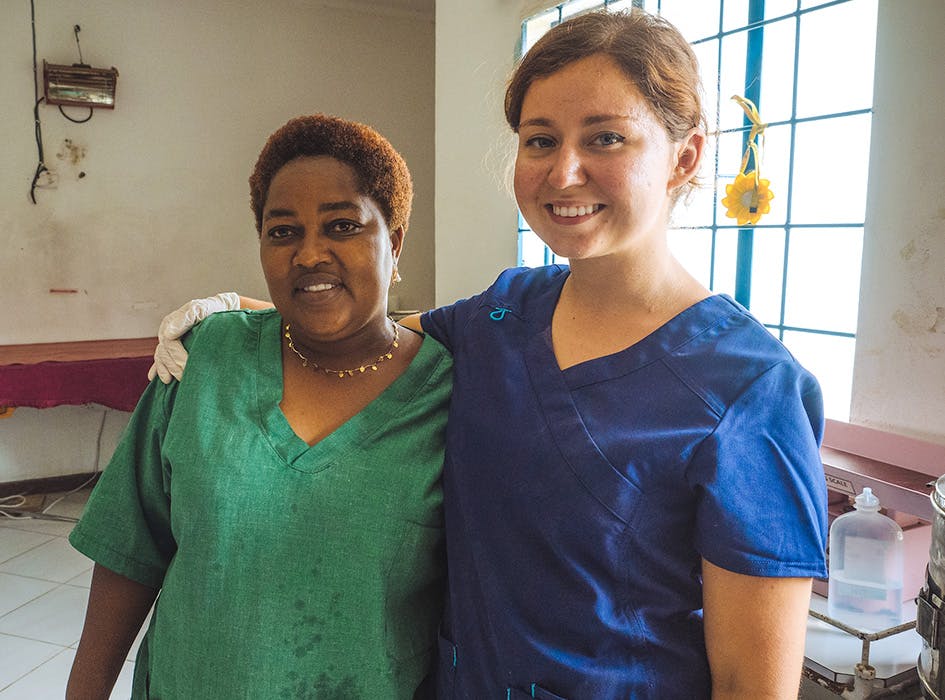Every year, thousands of well-meaning medical volunteers flock to Tanzania with the goal of helping those in need. However, this noble intention leads to an array of ethical questions about the true impact of their presence. Do such initiatives genuinely benefit the local communities, or do they sometimes create more harm than good?
Volunteering in Tanzania can trace its roots back to the colonial era, where foreign aid was intertwined with the exploitation of local resources. Statistics reveal that many short-term volunteers lack the necessary training, leading to substandard care. Additionally, consistent reliance on foreign volunteers might undermine the development of local healthcare professionals and infrastructure. Understanding this complex ethical landscape is essential in making informed decisions about medical volunteering.

Evaluating the Ethics of Medical Volunteering
Medical volunteering often brings up ethical questions, especially when considering its impact on local communities. Some people argue that short-term medical missions can disrupt local healthcare services. Local doctors may feel overshadowed by foreign volunteers with limited training. This situation might lead to a dependency on foreign aid. Exploring whether these initiatives help or harm in the long run is essential.
Volunteers’ intentions are usually good, but good intentions alone aren’t enough. Proper training is crucial to ensure that medical volunteers provide safe and effective care. According to an article, untrained volunteers can sometimes cause more harm than good. This highlights the importance of evaluating the skills and expertise of volunteers before they engage in medical tasks.
It’s also important to look at the volunteer organizations themselves. Transparent and ethical organizations work closely with local communities to understand their needs. They align their efforts with the goals of the local healthcare infrastructure. Here is the post about how ensuring cooperation can lead to better, more sustainable outcomes. Ensuring that their presence is truly beneficial is critical.
There are several strategies to ensure ethical medical volunteering. Volunteers should be adequately trained and prepared for the specific needs of the community they are serving. They should also stay long enough to make a meaningful impact and not just participate in short-term missions. This approach helps build trust with the local population and ensures that their work supports lasting changes in the healthcare system.
The Impact of Foreign Aid on Local Healthcare Systems
Foreign aid can have both positive and negative impacts on local healthcare systems. While it can provide much-needed resources, it can also lead to dependency. Local healthcare workers might rely on foreign aid instead of developing their skills and resources. This dependency can weaken the local healthcare infrastructure. Balancing aid with sustainable development is critical.
One of the major concerns is the disruption of local healthcare practices. When foreign volunteers step in, they may bring different methods and practices. This can confuse local health workers and patients. Consistency in healthcare delivery is essential for trust and effectiveness. Therefore, aligning foreign aid with local practices is crucial.
Foreign aid can also affect the local economy. By funding foreign volunteers, resources could be diverted away from local healthcare professionals. According to the article, this can undermine the local healthcare system’s ability to become self-sufficient. Investing in local healthcare workers ensures long-term improvement. Supporting local initiatives creates a more robust healthcare system.
However, foreign aid can be beneficial if managed correctly. It should focus on capacity building and training local healthcare workers. This approach ensures that the local system can sustain itself once the aid has ended. Here is the post about training for local development. Long-term support is key to a healthy healthcare system.
The Role of Training and Expertise in Ethical Volunteering
Training and expertise are essential for ethical volunteering, particularly in the medical field. Without the right skills, volunteers can do more damage than good. For example, poorly trained volunteers may misdiagnose conditions or provide inadequate treatments. This can lead to a lack of trust in both volunteers and the healthcare system. Therefore, ensuring proper training is vital.
Well-trained volunteers can make a significant positive impact. They can provide high-quality care, educate local healthcare workers, and share advanced techniques. This knowledge transfer is beneficial for both the volunteers and the local staff. Proper training helps bridge the gap between different healthcare standards. Volunteers can support sustainable improvements in the community.
It’s also vital to match volunteers’ expertise with the needs of the community. A skilled surgeon might not be the best fit for a community that requires basic healthcare. Volunteers must have relevant skills that align with the community’s needs. This matching ensures that their contributions are meaningful. It also prevents the duplication of services that may already be available locally.
Organizations sending medical volunteers have a responsibility to provide thorough training. This includes cultural sensitivity, local healthcare practices, and specific medical skills. Many effective programs include a strong training component before deployment. This preparation helps volunteers understand their role and how to make a positive impact. Investing in training is investing in the health and future of the community they serve.
Strategies for Sustainable Medical Volunteering
One key strategy for sustainable medical volunteering is focusing on long-term projects. Short-term missions often fail to create lasting change. Instead, volunteers should commit to long-term engagements that allow them to understand local needs thoroughly. This approach builds trust with the community. Real change takes time and consistency.
Collaboration with local healthcare providers is also essential. Volunteers should work closely with local doctors and nurses. This ensures that their efforts align with the existing healthcare system. It also fosters knowledge exchange and mutual respect. A collaborative approach strengthens the overall healthcare infrastructure.
Another important strategy is providing proper training and resources for the community. Volunteers should not just offer temporary solutions but equip locals with the skills and tools they need. Training local healthcare workers enhances their capabilities. Providing essential medical supplies supports their day-to-day work. These efforts lead to sustainable improvements.
Regular assessment and feedback are crucial for continuous improvement. Volunteers and local healthcare providers should regularly evaluate the impact of their work. This helps identify areas for improvement and adjust strategies accordingly. Feedback from the community is also valuable. It ensures that efforts are meeting the actual needs of the people served.
Finally, ethical guidelines should be strictly followed. Volunteers should respect local culture and practices. They should also ensure that their presence does not create dependency. Understanding and respecting the local context is vital for sustainable and ethical volunteering. This approach leads to better outcomes for both volunteers and the communities they serve.
Key Takeaways
- Medical volunteering in Tanzania requires proper training for volunteers.
- Collaboration with local healthcare professionals is essential.
- Sustainable practices help create long-term improvements.
- Respecting cultural differences ensures ethical volunteering.
- Avoiding dependency on foreign aid strengthens local systems.

